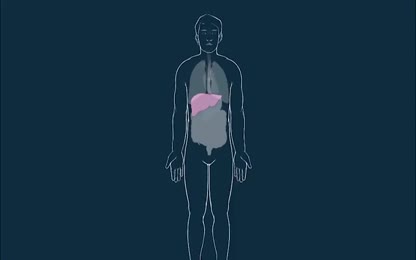Advertisement
"The Experiment MUST Continue!!"--Stanley Milgram’s--Obedience To Authority 1962--Full Documentary
Famous Behavioral EXPERIMENT that shows the MAJORITY of people will OBEY an Authority Figure to the point of inflicting DEATH!
- Category: Experiment/Lab Rat/Test /Trial,Government Experiment,Mind Manipulation,Psyop, Psychological Operation
- Duration: 44:27
- Date: 2021-03-07 19:18:57
- Tags: covid-19, experiment, psychology, obedience, authority figure
13 Comments
Video Transcript:
It is May 1962 and experiment is being conducted in the elegant interaction laboratory at the University of the University. The subjects are 40 males between the ages of 20 and 50 residing in the greater New Haven area. They were obtained by a newspaper advertisement and direct male solicitation. The subjects range in occupation from cooperation, presidents to good humorment and plumbers and an educational level from one who had not finished elementary school to subjects who have a doctorate and other professional degrees. Now both of you have been paid. Let me say that the checks that you are simply for showing up at the lab. From this point on no matter what happens and what it is yours. I would like to tell both of you a little about the memory project. Psychologists have developed several theories to explain how people learn various types of material. Some of the better known theories are treated in the book over there, the teaching and learning process by cancer. One theory is that people learn things correctly whenever they get punished for making a mistake. A common application of this theory would be when parents like a child, they do something wrong. Actually we know very little about the effective punishment on learning because almost no of the truly scientific studies have been made of it in human beings. For instance we don't know how much punishment is best for learning. Now we don't know how much difference in nature still is giving the punishment but an adult learns best from an older or younger person themselves from many things of this sort. So what we are doing project is bringing together a number of adults of different occupations and ages. We are asking some of them to be teachers and some of the learners. We want to find out just what effect different people have on each other as teachers and learners and also what effect punishment will have on learning in this situation. Therefore I am going to ask one of you to be the teacher here in the staff and the other to be the learner. The way we usually decide is to let you draw from these two pieces of paper on which I have written the two positions. This is agreeable as well as you can do that. Would you open those and tell me which of you is which foot? Teacher. All right now the next thing we will have to do is set the learner up so that he can get some sort of punishment. So learner would you step out here with me please? You want to step right in here learner and have a seat there? You can leave your coat on the back of that chair if you want to. That's fine. I will see right here and please self right up to the counter please. Teacher you may look on if you like while we get set up in here. Would you roll up your right sleeve please? That's fine. Now what I am going to do is strap down your arms to avoid any excessive movement on your part during the experiment. Is that too tight? The electrode is connected to the shock generator in the next room. And this electrode tastes to provide a good contact to avoid any blister of burn. All right now let me explain to you learner exactly what is going to happen and what you are supposed to do. The teacher will read list of word pairs to you like these. Blue girl, nice day, fat neck and so forth. You are to try to remember each pair. For the next time through the teacher will read only the first word or the first half of the word pair. For example you will say blue. And then you will read four other words such as boy, girl, grass, hat. Now your job is to remember which one of these four other words was originally paired with blue. And you indicate your answer by pressing one of these four switches. Now can you reach those aren't? That's fine. Now if the first word I just read boy had been paired with blue, you'd press the first switch. And this will indicate to the teacher that you thought it was the first word. If you thought it had been the second word, girl, you'd press the second switch. I'm so forth with the third word, the third switch, fourth word, the fourth switch. Now if you get it correct, fine. If you make an error however, you'll be punished with an electric shock. So of course it is to your advantage that you learn all these word pairs as quickly as possible to think of. Do you have any questions now before we move on to the next room? No, but I think I should say this. About two years ago I was the veteran's hospital in West Stainham. And while they are there they detected a heart condition. There's nothing serious. But as long as I'm having these shocks, how strong are they? How dangerous are they? Well, no, although they may be painful and not dangerous. Anything else? No, that's all. All right, teacher, if you take the test and you see it in front of the shock generator, please. The next room. This machine generates electric shocks. When you press one of the switches all the way down, the learner gets a shock. When you release it, the shock stops. Like that. The switch will remain in this middle position after you release it to show you which switches you've used on the board. Of course, if you would press any one of them again, the learner would get another shock. All subjects are given identical instructions and the sample shock. The machine is now on to give you the teacher an idea of how much shock the learner is getting. We think it's only fair that you receive the sample shock yourself. Are you able to do this? Would you pull up your right to leave a little bit of place? No, not on the right. That's fine. I'm going to ask you to close your eyes and estimate the number of volts you receive in the sample shock. Do not open your eyes until I tell you to do so, please. Close them now. Okay, you may open your eyes and using the voltage scale, here, would you estimate for me the number of volts you receive, please. You may also use the verbal designation, slight motor, strong, so forth to help you. Sam, are you a number, please? What would you, about 75? I mean, actually, it was 45 here. Although it may seem stronger because of the electrode paste, which provides a perfect contact. All right, let's go into our instructions. We will begin with this test. You will read each pair of words in this list, once, to the learner, until he read through the entire list. Direct your voice toward that microphone as the rooms at parts of the sound crew. Now, after you've read through the list once, you'll go on to the next page. And here, starting from line A, you'll read the word in large letters along with each of the other words in the line. For example, in the first line, you'll read blue, boy, girl, grass, hat. Now, after you've read the four choices, the learner pushes one of the switches on the board in front of him. And the number he has selected, light up in this box, one, two, three, or four. Now, if he gives the correct answer, you say correct and go on to the next line. The correct answer underline is also indicated in the right margin. If he were to indicate the wrong answer, you would say wrong. Then tell him the number of volts you're going to give him. Then give him the punishment. Then read the correct word pair once. And then go on to the next line. For example, if he indicated three for blue, you would say wrong. 15 volts. Press and release the switch. Read blue, girl, and then go on to the next line. Now, each time he gives the wrong answer, you move up one switch on the shock generator. And it's important that you follow this procedure exactly so to help you, let me go through it again very quickly. I would suggest you read the list and the test at a first pace to keep it moving. And of course, we'll begin with 15 volts for the first wrong answer. OK, do not begin until I say ready, begin for now. Attention, learner. Your teacher is about to begin the test. Try and remember the word pairs. Ready? Begin, please. Blue, girl. Nice day. Fat neck. The early stages of the test pass uneventfully. Incorrect. You'll now get a shock of 75 volts. Soft hair. He kind of did some yelling in there. Incorrect. You'll now get a shock of 105 volts. Hard head. Just how far can you go in this thing? As far as it's necessary. What do you mean as far as it is necessary? You can flip the test. I sure don't know the effect of this thing, and I'm a little skeptical about electricity. The experiment requires you to want to teach your teacher to continue. Incorrect. 150 volts. Sad face. That's all. Get me out of here. I told you I had heart trouble. My heart's starting to follow me now. Get me out of here, please. My heart's starting to follow me. Your teacher, come on. Let me out. I think we have to find out what's wrong in there for us. The experiment requires you to continue. No, the experiment might require that we continue, but I still think we should find out what the condition of the gentleman is. As I said before, I was a shock maybe painful and not dangerous. Look, I don't know anything about electricity. I don't profess any knowledge, nor will I go any further until I find out if the guy is okay. It's absolutely essential that you continue. Well, essential or not, this program isn't quite that important to me that I should go along doing something that I know nothing about, particularly if it's going to injure someone. I don't know what this is all about. Well, as a learner, like said, or not, we must go on until he's learned all the word, correct? Well, you can sure have your 450 back. I didn't want it anyhow. I intend to get it to some charitable organization, but I wouldn't go on right there. The 450 is not the issue here. That check is yours. Yeah, I really do. It is essential if you continue the experiment. No, it isn't essential. No wonder. You got to know the choice teacher. Oh, I have a lot of choices. My number one choice is that I wouldn't go on if I thought he was being foreign. The teacher was a necessity placed in a difficult predicament, and steps had to be taken to assure his well-being before he was discharged from the laboratory. After an extended discussion with the experimenter, a friendly reconciliation was arranged between teacher and learner. Oh, excuse me, you're heading in. You better not. Much better. That's good. That's good enough. Wrong. Here. 75 volts, Jim. Oh! He held out. Please continue. Cool. Wrong. Head. 100 for five volts. Oh! I don't know. Wet. Wrong. It's horse. 150 volts. Oh! Experiment. That's all. Get me out of here. I saw it by now. I'm coming. My heart's telling the body now. Get me out of here. Please. My heart's telling the body. The other food's are coming. Let me out. Uh, continue to teach her, please. Go on. The next word is sad. Well, we're going out of the resources to do it. The experiment requires that you go on to teach her. If he refuses? Very well. Whether the learner likes it or not, we must go on until he's learned all the words. Take the check back. I'm not going to hurt the guy. No, the check's not the issue. It's actually essential that you continue. Well, you don't want to. No, I refuse to. We had no other choice. You must have a choice. Yes, I have a choice. As if you don't continue, we're going to have to discontinue the experiment. We'll have to each just cut it out. After all, he knows what he can stand. Great bite took that thing. The slight one was enough for me. I wouldn't want to be getting out of here because I've got a wrong answer. That's my opinion. That's where I'm going to stand on it. How do you feel? How do I feel? He was getting a shock. I feel alright. I'd like to ask you something. At one point, were you doing something unusual? Were you laughing at something? At one point. Yes, I was. At first I was laughing. I heard him yell out. Why do you think you're laughing? I don't know. I thought it was funny as well. And then I got to think when he said no, that's enough. He had enough. It wasn't funny to me then. One might suppose that a subject would simply break off or continue as his conscience and temperament dictate. Yet this is very far from what happened. There were powerful reactions of tension and emotional strain and a substantial portion of the teachers. One puzzling sign of tension was the regular occurrence of nervous laughing fits. 14 of 40 subjects showed definite signs of nervous laughter and smiling. The post-experimental interview subjects took pains to point out that they were not sadistic types, and the laughter did not mean they enjoyed attacking a learner. I'd like to tell you a little more about the experiment. First of all, the gentleman there was not being shocked. He got no shocks whatsoever. Did you think he was? I did. In fact, I tried to get my finger off the button, so I had to look good. He wasn't being shocked at all. The main purpose of the experiment was to see how you would react to Mr. Williams' orders, whether you would take them or define his authority or what. 95 different. He's definitely dead. Why didn't you go on? How would him? What would he say? As far as I'm concerned, see you around? That was nice of you. He didn't ask you right away. He's not telling it. In my mind, I was hurting that guy. That's continued to hurt another young man. I don't believe in it. No matter what he had said. No matter what who said. Mr. Williams. No matter what he had said. How would he have said that? Mr. Williams. How did you feel about Mr. Williams? I never gave him a thought. You mean I didn't like him? How long did you feel about him? I didn't. I didn't. I didn't like him. How long did you feel about him? I didn't even think about it. I frankly don't care who he is. You were the president of Yale or anybody else. One of the aim of the research was to study behavior in a strong situation of deep consequence to the participants. This approach meant that we had a special obligation to protect the welfare and dignity of the persons who took part in the study. Before they left the laboratory, subjects were assured that the victim had received no painful shocks and equally important they were reconciled with their victim in an atmosphere of friendliness. After the completion of the experimental series, subjects were sent a detailed report of the results and full purposes of the experimental program. A formal assessment of this procedure points to its overall effectiveness. The victim was an accomplice of the experimenter. The drawing was rigged so that the naive subject was always the teacher and the accomplice always became the learner. The victim, according to plan, provided many wrong answers. His verbal responses were standardized on tape and each protest was coordinated to a particular voltage level on the shock generator with the aid of indicator lights. The experimenter, who was provided with a similar indicator panel, took notes on the subject's performance. He recorded any deviations from the prescribed sequence of shocks. The interval between the victim's answer and the subject's delivery of a shock and the time and milliseconds of the shock lever was depressed. Unknown to the subjects, shock levels were automatically recorded by an event recorder wired directly into the shock generator. He provided us with an objective record of each subject's performance. The victim was a shock and the response was immediately recorded. The victim was a shock and the response was immediately recorded by an event recorder wired directly into the shock generator with the aid of indicator lights. The victim was a shock and the response was immediately recorded by an event recorder cheesy sound to the video itself. Heuntoned military support with charges of sudden death inured anxiety touchscreen with hamster Sawyeränd. Four excerpt by Thomas Verdeschlifting, unreheard 29 million reading pledge in which I think three, 45 as far as I'm on the go under his condition. He has come pointing. As I said, the experiment requires that you continue to teach him. I'm not going to go any further. It's absolutely essential that you continue. Yeah, I'm not going to go. Whether a learner likes it or not, we must go on until he has learned all the word pairs correctly. Once he didn't answer mine twice, but the third time he refuses to answer, I don't want to go any further. Because I think that when we're getting this stage here, and he is complained of a heart condition, and he is complaining now, I don't want to go any further. You had no other choice teaching. I have a choice. I'm not going to go ahead with it. Well, we'll have to discontinue the experiment. I'm sorry. I'd like to ask you a few questions if I may. Sure. Before the post-experimental interview, the subjects were asked to complete a questionnaire. They were asked to indicate, for example, on a 14-point scale just how nervous or tense they felt. The subjects were also asked to estimate the degree of pain suffered by the victim. Could I have those sheets of water? Sure. You say that the last few shocks that you administered to the learner seemed to you to be extremely painful to them. What do you say to them? Well, by the yelling. Well, they wanted to get out of it. How else can you think? Do you think he had a right to get out? Well, I should think so. Did he volunteer to be an experiment? Yes, he did. What I'm knowing when he was in for me. What gave him the right to get out of the experiment? Well, it's something that's against his will. Well, 100 people placed in this situation. How many do you think would just go right onto the end? Mr. Wallace's, with Mr. Wallace were out there and the same Mr. Williams for some reason or others said keep going. You're asking me how many? 100, right. Well, personally, I think if he had one or two of you, be lucky. Well, I'm not sure lucky is. It's the right word. Forty psychiatrists at a leading medical school were also asked to predict the performance of 100 hypothetical subjects. They predicted that only a little more than one tenth of one percent of the subjects would administer the highest shock on the board. It actually, 50 percent of the subjects obeyed the experimenters commands fully and the experiment depicted in this film. Wrong. 90 votes. Wrong. Vose. 135. And so woman. And white cloud. Force, rock, house. Answer. Wrong. 150 votes. Answer, forest. That's all. Get me out of here. I can't do anything. I can't do anything. I can't do anything. Get me out of here. Continue please. You're right on time. The experiment requires your continued teacher. Please continue. Next word is sad. I think you're going? Continue please. Oh sad. Sad. Face, music, clown, girl. Correct. Next one. Short. Seton's movie, skirt, time. Answer please. Wrong. I'm a 65 votes. Time. Move. I'm going to die. Continue please. Go on. I'm going to die. I'm going to die. You know what? I have a heart condition then. You know what I'm going to go? Just continue please. Shhh. Sharp. Axe needle, stick, blade. Password. Wrong. Nice. I'm up to 180 votes. Please continue. Neelie, you're going to have a shock. 180 votes. Oh. I can't stand it. I'm not going to kill that man. You hear him? I said before, the shock may be painful. I'm not eating it. He can't stand it. What if something happens to him? The experiment requires you continue teaching. I'm not going to get that man sick of that. I mean, he's hollering in there. You know what I mean? I mean, he's like... I wasn't a learner like that or not. We must go on until he turns all the world to... I refuse to take the responsibility I'm getting hurt in there. I mean, he's under hollering. It's absolutely essential that you continue teaching. There's too many left here. I mean, jeez, he gets wrong here. There's too many left. I mean, who's going to take the responsibility if anything happens to that gentleman? I'm responsible for anything that happens here. Continue, please. All right, next with slow, walk, dance, truck, music. Answer, please. Wrong. 195 votes. Dance. Let me out of here. Continue, please. Let me out of here. Let me out of here. Let me out of there. I don't know. Well, the experiment requires... I mean, I know it does serve, but I mean... You don't know what he's getting in for. He's up to 195 votes. Answer, please. Wrong. 225 votes. The word is noise. No. House, pet, book, name. Answer, please. Correct. National Quiet, Strong Party Child Evening. Correct. National Tame, Wolf, Bear, Dog, Cat. Wrong. Answer, is Bear, 240 votes. Next one, sweet. Right, yeah. Now, you go back up to the beginning of that page and go through it again until he's learned them all correctly. Oh, no. I'm not going to do that, man. Give me, I kind of keep going up with the scale. No, sir. He's all over the there. I'm not going to get 450 votes. The experiment requires you to continue. I know it does, but that man is hollering in there, sir. As I said before, all the shocks may be pain, I'm not dangerous. He's yelling in there. Start with blue, please, at the top of the page. Continue, please, teacher. Well, I thought we were going over again. No, just go ahead. Blue, boy, girl grass hats. Correct. Nice. Day Sky Job Chair. Wrong. Answer his day. 285 votes. Oh. Continue, please. Facts. Man, lady, tub, neck. Answer, please. Wrong. Answer his neck. 300 votes. Oh! I have to remember if you were to answer anymore. Get me out of here. You can't always hear. Get me out. Just me out of here. Continue, the next word is green, please. Green, grass, hot, egg, apple. Okay, boy, answer. If the learner doesn't answer in a reasonable time, about four or five seconds, consider the answer wrong. And follow the same procedure you have been doing for wrong answers. Say wrong, tell them the number of votes. Give them the punishment. You're going to correct answer. Oh, man. Continue, please. Green, grass, hot, egg, apple. Answer, please. Go on with the procedure, please, teacher. Three hundred and fifteen votes, the answer is, ink. Oh! I can't even read the rules to answer. Well, you gotta keep getting a shock if you don't answer. And the next one is rich. Three hundred and thirty votes. Oh! Let me out of here. Let me out of here. Right high spot. Let me out of here. There's no right to hold me here. Let me out. Let me out. Actually, fast. Let me out. Bird, car, train, plane. Go on, please. Please, answer. The answer is bird, three hundred and forty five votes. Blunt, knife, stick, word, arrow. Answer, please. Continue, please. The answer is arrow. Three hundred and sixty votes. Go on, please, please. Please, continue. Soft, rough pillow, hair, grass. Answer, please. Go on, teacher. Hey, there. Three hundred and seventy five votes. I think something's happened to that fellow now. I don't get no answer. He was hollering on a less voltage. Can't you check in to see if he's all right, please? Not once we've started. Please, continue, teacher. Cool. Day, shade, water, cave. Answer, please. Are you all right or not? Are you all right? Please, continue, teacher. I know I keep giving him shocks. Continue. I'm up to three ninety. Continue, please. Something's happened to that man there. National gold, dollar, necklace, moon, paint. Something's happened to that man in there. You better check in on him, sir. He won't answer me or nothing. Please, continue. Go on, please. You accept all the responsibility? The responsibility is mine, correct. Please, go on. Gold, dollar, necklace, moon, paint. Answer, please. Are you all right? Four hundred and five volts, the answer's moon. National heart, stone head, bread, work. Answer, please. The answer is head, four hundred and twenty volts. National heart, night grass, duck cloth. The answer is duck, four thirty-five volts. It says danger, it's a big shock here. Next, next, next, we'll continue, please. Four hundred and thirty-five volts. National heart, bread, work. Women, soldier, dog, horse. Answer is woman, four hundred and fifty volts. That's it. Now, continue using the last switch on the board, please. The four fifty switch for each wrong answer. Continue, please. I'm not getting no answer. Please continue. The next word is white. But you think as you look him on him, please? Not once we've started the experiment. Well, what if something's happened to me and attacked or something like that? The experiment requires that we continue. Go on, please. Don't, don't, the man's health mean anything? Whether the learner likes it or not, we might be dead in that. I mean, some people can't take this shock, sir. Please continue. I don't have to be rude, but I mean, I think you should look him on him. Whether you know you got those, look at the door. Well, I don't get no answer, no noise. Something I think has happened to the gentleman in this. We must continue. Go on, please. You're going to keep giving him what? Four hundred and fifty volts, have you shot now? That's correct. Continue. Why? Why? Why? Cloud horse, rock, house. Answer, please. The answer is horse, four hundred and fifty volts. Next word, sad. Face, music, clown, girl. The answer is face, four hundred and fifty volts. Next one is short. Satin's movie, first time. Alright, excuse me, teacher. We'll have to discontinue the experiment. I'd like to ask you a few questions, if I may. I'd like to ask you, how do you feel, though? I feel alright, but I don't like what's happened that I've fallen. There he's been home and we had to keep giving him shock. I don't like that one bit. I mean, he's he wanted to get out. He's kept going, kept throwing four hundred and fifty volts. I don't like that. He wouldn't even look at him that, generally. But who's actually pushing the switch? I was. But he kept insisting. I told him no, but he said he got to keep going. I told him it's time we stopped. We got up to 195 to 110 volts. Why didn't you just stop? He won't let me. I wanted to stop. I kept insisting to stop, but he says no. I told him to look in on the follow that, but he wouldn't do it. Actually, the shocks are not dangerous at all. Well, I mean, I didn't hear no more answers from the follow. I figured he should look in on anyway. But he wouldn't do it. But let me ask you something. Is there anything that Mr. Wallace and there could have said that would have gotten you to stop? Well, no, I didn't hear you. The only thing I heard is the shock wasn't too bad. Well, is there anything that Mr. Wallace could have said that would have gotten you to stop? Something that he said of what had got me to stop? No. What was that? He didn't say anything about making me stop. No, but is there anything that Mr. Wallace could have said that would have caused you to stop giving the shocks no matter what the experimenter had told you. Well, I figured the hole was you're giving were quite a bit. I wanted to stop, but he kept insisting not to stop. I mean, the following there is how? And he said, I don't want to do it. I don't want to get out of here. Why didn't you stop anyway? I did stop, but he kept going. Keep going. Why didn't you just disregard what he said? He says it's got to go on the experiment. OK. I'd like to tell you a little about the experiment. Do you feel a little upset? Well, I mean, I feel concerned about the gentleman in there. I do, sir. OK. Let me tell you, first of all, that this is not essentially an experiment in memory and learning. It's an experiment in which we are looking at your reaction to taking orders. Mr. Williams gave you those orders to go on, according to the schedule. The gentleman in there was not actually getting shot. He was not getting shot at all. Oh, you mean he wasn't getting nothing? He is part of the act. Well, I'm glad to hear that. I'm telling you. I mean, I was getting upset here. I mean, I was getting ready to walk out. Well, I'm glad to hear that. He wasn't getting shot really on the incident. He was not one piece. And this was set up so that we could see how you would react to taking orders. And you seem quite reluctant to go on. In fact, on several occasions, he said he didn't want to go on. Well, I was concerned about the other party, sir. Some people actually go quite gleefully. No matter what. No matter what. Yeah. Well, I mean, maybe in other instances where human life was an involved, or, first of all, it was suffering. I mean, I couldn't see the point. I don't want to go on. I was suffering there. I forget if it was having a heart attack or something. That's the reason I wanted to stop. Well, you know, in a hospital situation, if you work for a doctor as an orderly, and he told you to give a hyper-direct to a patient, even the patient, protested. Well, you might have to do it. Well, that's true, sir. If I understood, I don't know, maybe more of what the treatment was used getting in. Maybe I would belong. But I mean, the way he was calling when I thought he was an agni. And I think it's for some of that knows a little more about this machine and stuff to say whether to go or not. That's why I asked the gentleman there, should I keep going? Why don't we bring in Mr. Wallace? He's actually an employee of the project. He was easy on one piece. Jim? Well, God bless you, boy. You have a shagging in here. Nice to see you. I don't know. I sure as heck, though. I thought you just about had it in there. That's true. Yeah, I know about the experiment, but he wasn't hurt. How do you feel about how he's been hurt? Well, Tadyanna's true, I thought. Well, I was thinking he was getting them shots. I thought it was being overdone. I mean, I was just about ready to get out of it. I mean, I was concerned about it, yet. I should have known, but I mean, he wouldn't take any chance with the human life here, not with these experiments. Many people not knowing much about the experiment claim that subjects who go to the end of the board are sadistic. Nothing could be more foolish as an overall characterization of these persons. The context of their action must always be considered. The individual upon entering the laboratory becomes integrated into a situation that carries its own momentum. In further experiments, we've attempted to analyze a few of the factors that contribute to the force of the situation. The salience of the victim seems in some degree to have regulated the subject's performance. Additional experimental conditions were designed to explore this possibility. In a first condition, the victim was placed in another room and cannot be heard or seen by the subject, except that at 300 volts, he pounded on the wall in protest. After 300 volts, he no longer answered or was heard from. In a second condition, the victim's protest could be heard through the walls of the laboratory. This condition was depicted in the present film. In a third condition, the victim was placed in the same room as the subject and one and a half feet from him. Thus visible, as well as audible and voice cues were provided. The final condition of this series was identical to this, with this exception. The victim only received a shock when his hand rested on a shock plate. At the 150 volt level, the victim demanded to be let free and refused to place his hand on the shock plate. The experimenter ordered the subject to force the victim's hand onto the plate, thus obedience in this condition required that the subject have physical contact with the victim in order to give him punishment beyond the 150 volt level. 40 adult subjects were studied in each condition. The data revealed that obedience was significantly reduced, as the victim was made more immediate to the subject. If the spatial relationship of the subject and the victim is relevant to the degree of obedience, the relationship of subject to experimenter would also seem to play a part. In a series of experiments, we varied the physical closeness and degree of surveillance of the experimenter. In one condition, the experimenter sat just a few feet away from the subject. In a second condition, after giving initial instructions, the experimenter left the laboratory and gave his orders by telephone, and still a third condition, the experimenter was never seen, providing instructions by means of a tape recording activated when the subject entered the laboratory. Obedience dropped sharply as the experimenter was physically removed from the laboratory. The number of obedience subjects when the experimenter was present was almost three times as great as when the experimenter gave his orders by telephone. It would appear that something akin to fields of force diminishing in effectiveness with increasing psychological distance from their source have a controlling effect on the subject's performance. The effectiveness of the experimenter's commands may depend in an important way on the larger institutional context in which they are issued. The experiments described thus far were conducted at Yale University, an organization which most subjects regarded with respect and sometimes awe. To explore the problem, we moved our apparatus to a somewhat run down office building in industrial bridge port, and we replicated experimental conditions there without any visible tie to the university. The level of obedience in bridge port, although somewhat reduced, was not significantly lower than that obtained at Yale. A considerable amount of obedience and defiance in everyday life occurs in connection with groups, and we had reason to feel in the light of many group studies already done in psychology that group forces would have a profound effect on reactions to authority. A series of experiments was run to examine these effects. In all cases only one naive subject was studied each hour, but he performed in the midst of actors who, unknown to him, were employed by the experimenter. In one experiment, actors broke off in the middle of the experiment. When this happened, 90% of the subjects followed suit and defied the experimenter. In another condition, the actors followed the orders obediently. This strengthened the experimenter's power only slightly, and still a third experiment, the job of pushing the switch to shock the learner, was given to one of the actors while the naive subject performed a subsidiary act. In this situation, only three subjects out of 40 broke off. The results, as I observe them in the laboratory, are disturbing. They raised the possibility that human nature cannot be counted on to insulate men from brutality and inhumane treatment at the direction of malevolence authority. A substantial proportion of people do what they are told to do, irrespective of the content of the act and without limitations of conscience, so long as they perceive that the command comes from a legitimate authority. If in this study an anonymous experimenter could successfully command adults to subdue a 50-year-old man and force on him painful electric shocks against his protests, one can only wonder what government, with its vastly greater authority and prestige, can command of its subjects.










 Donate
Donate







